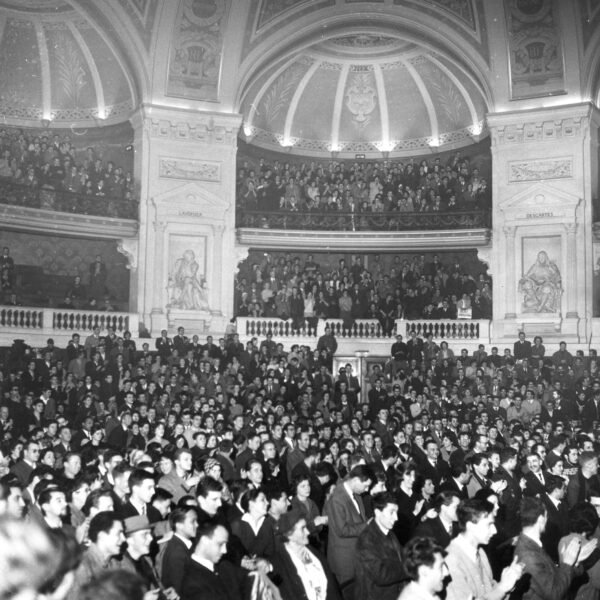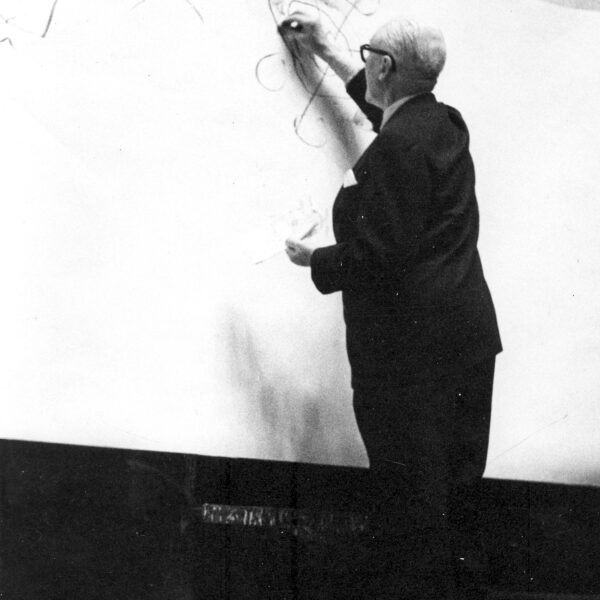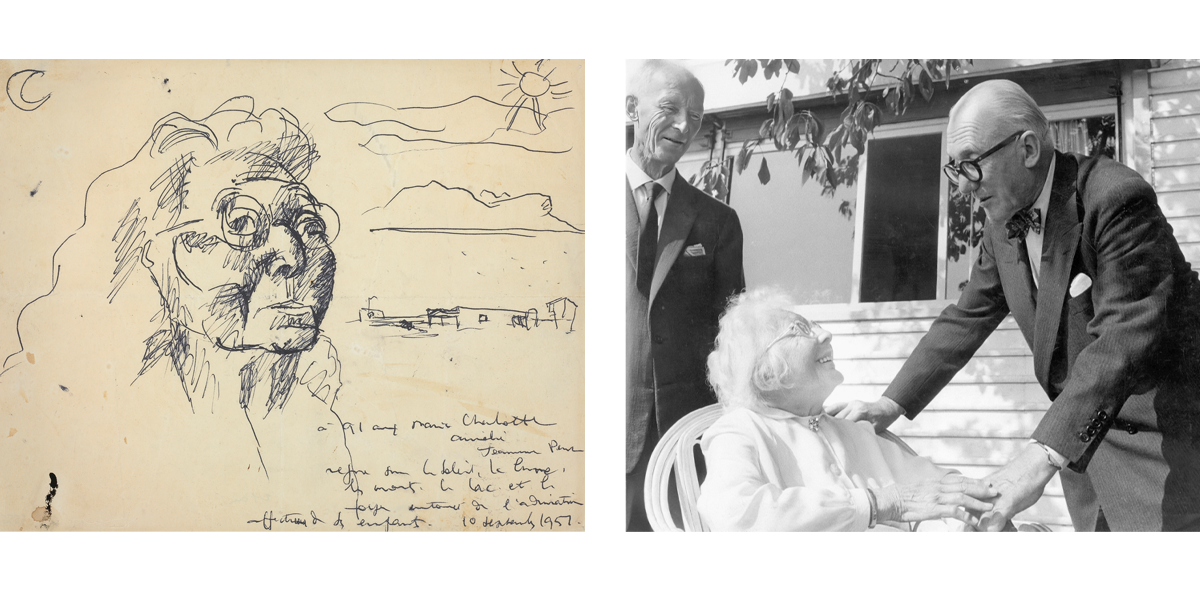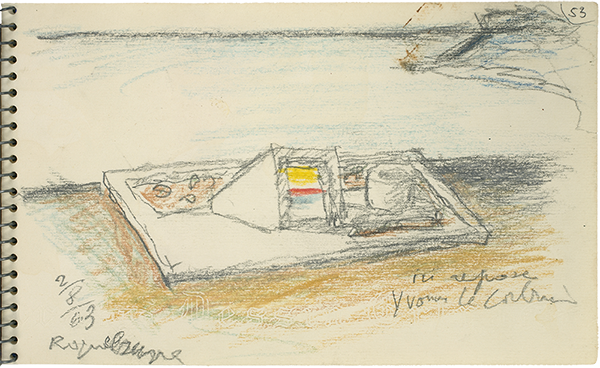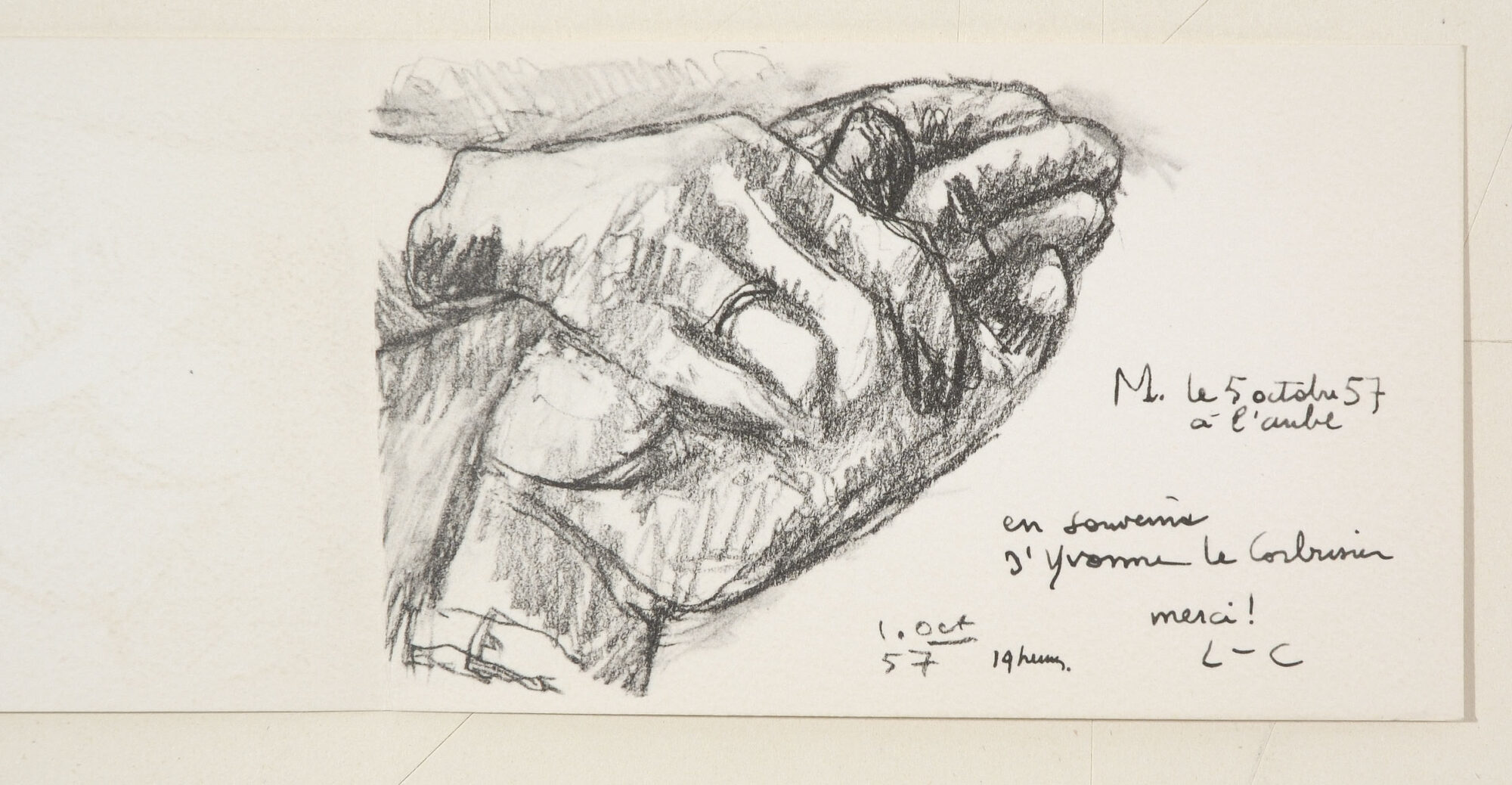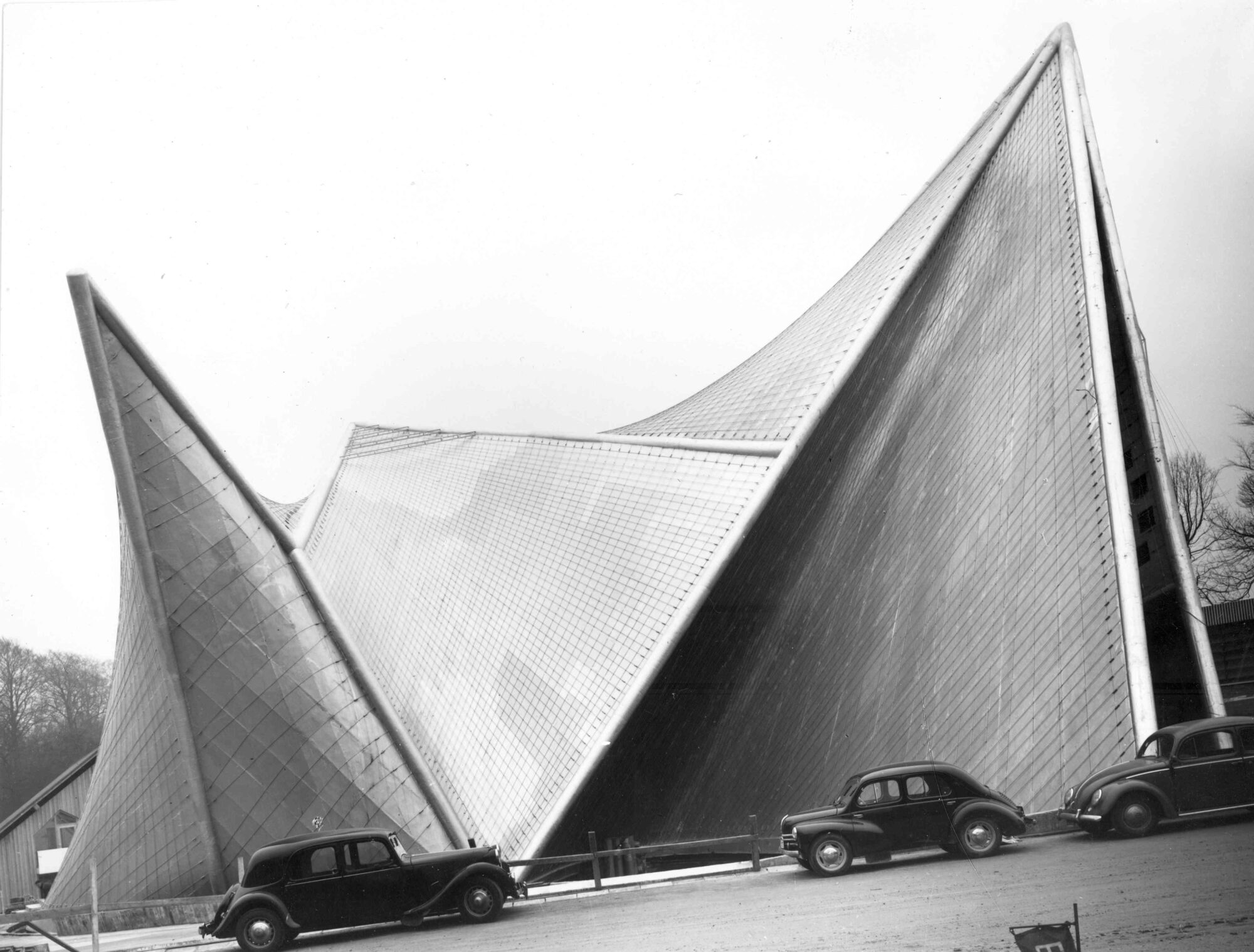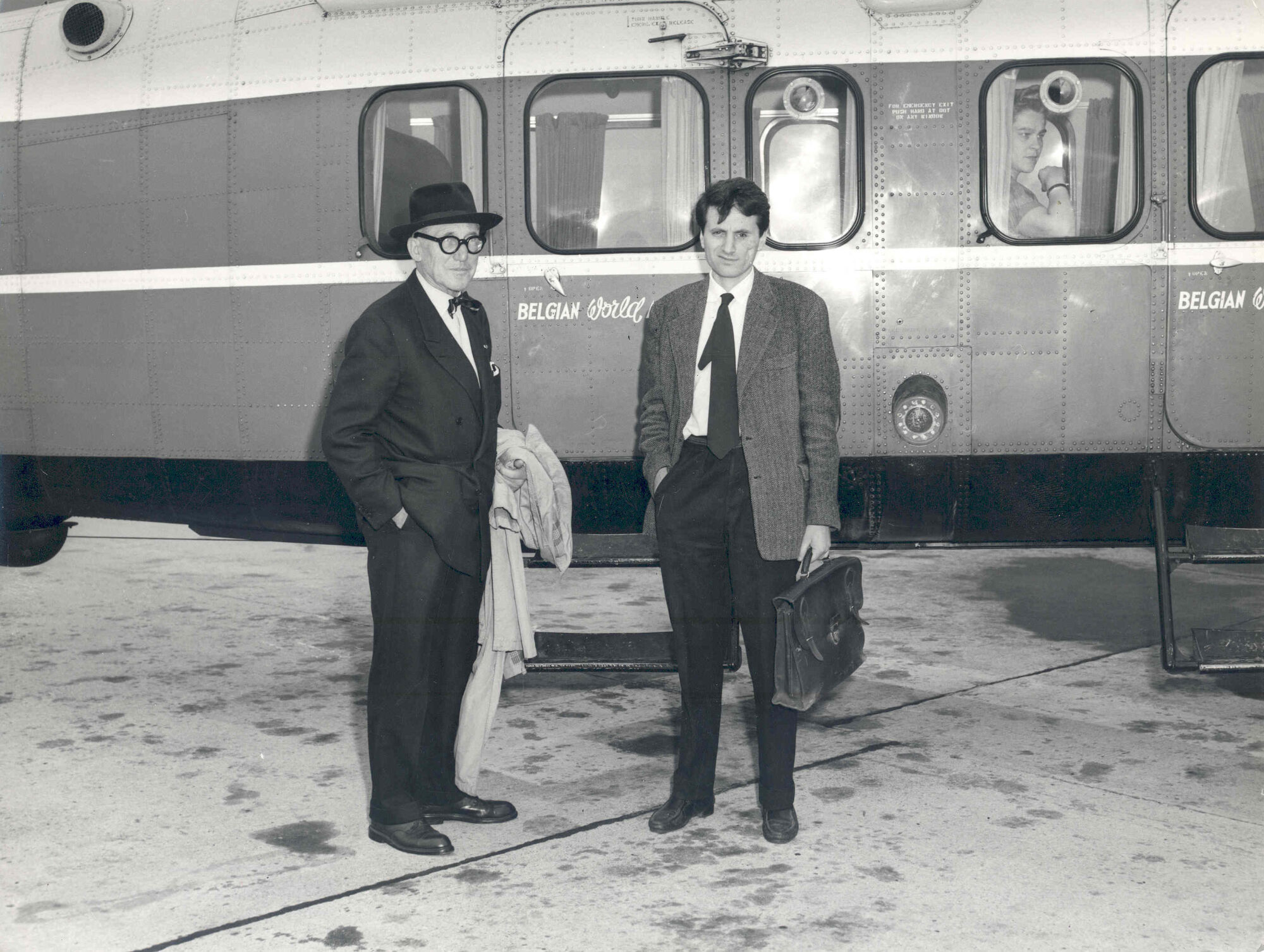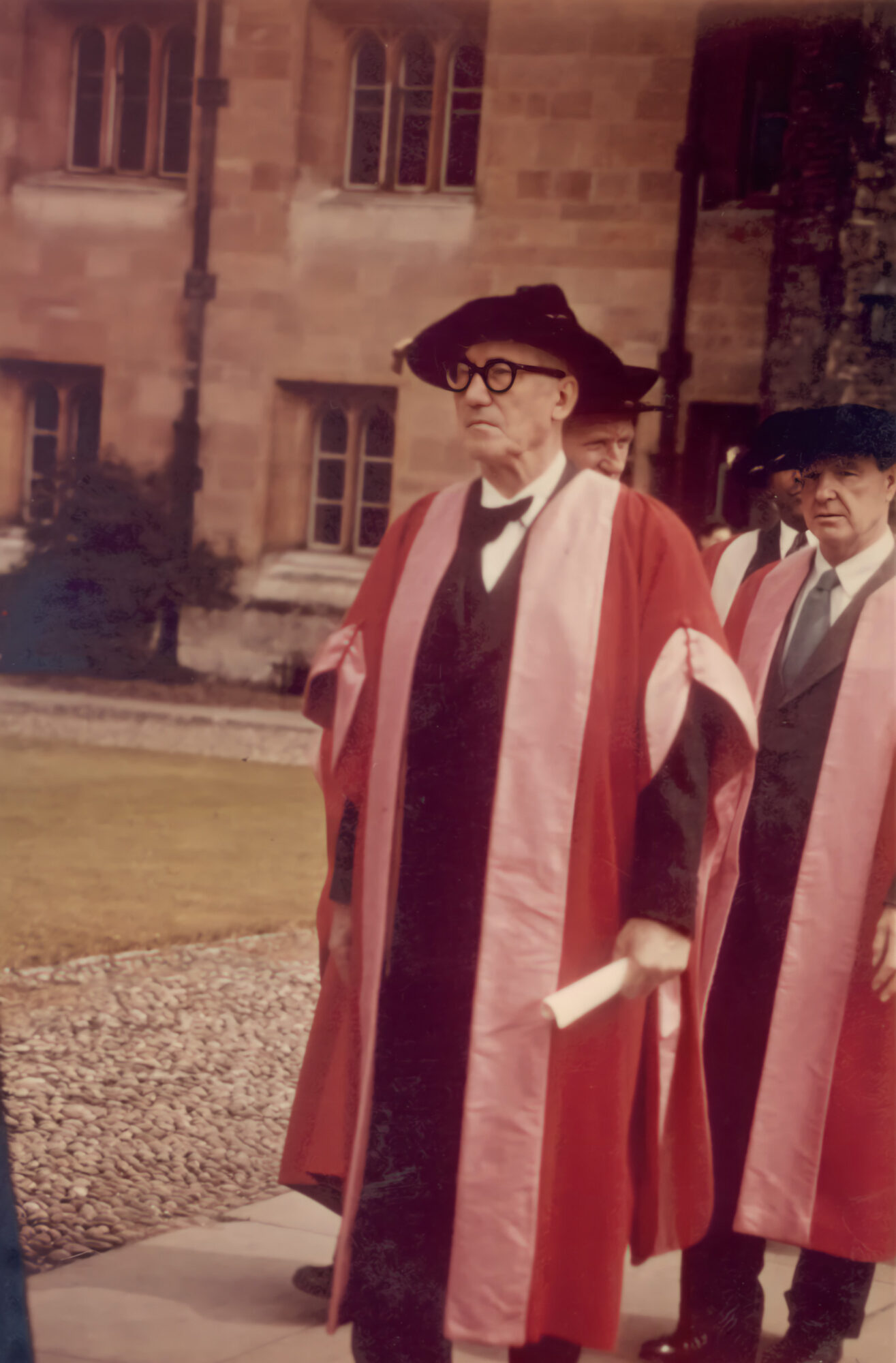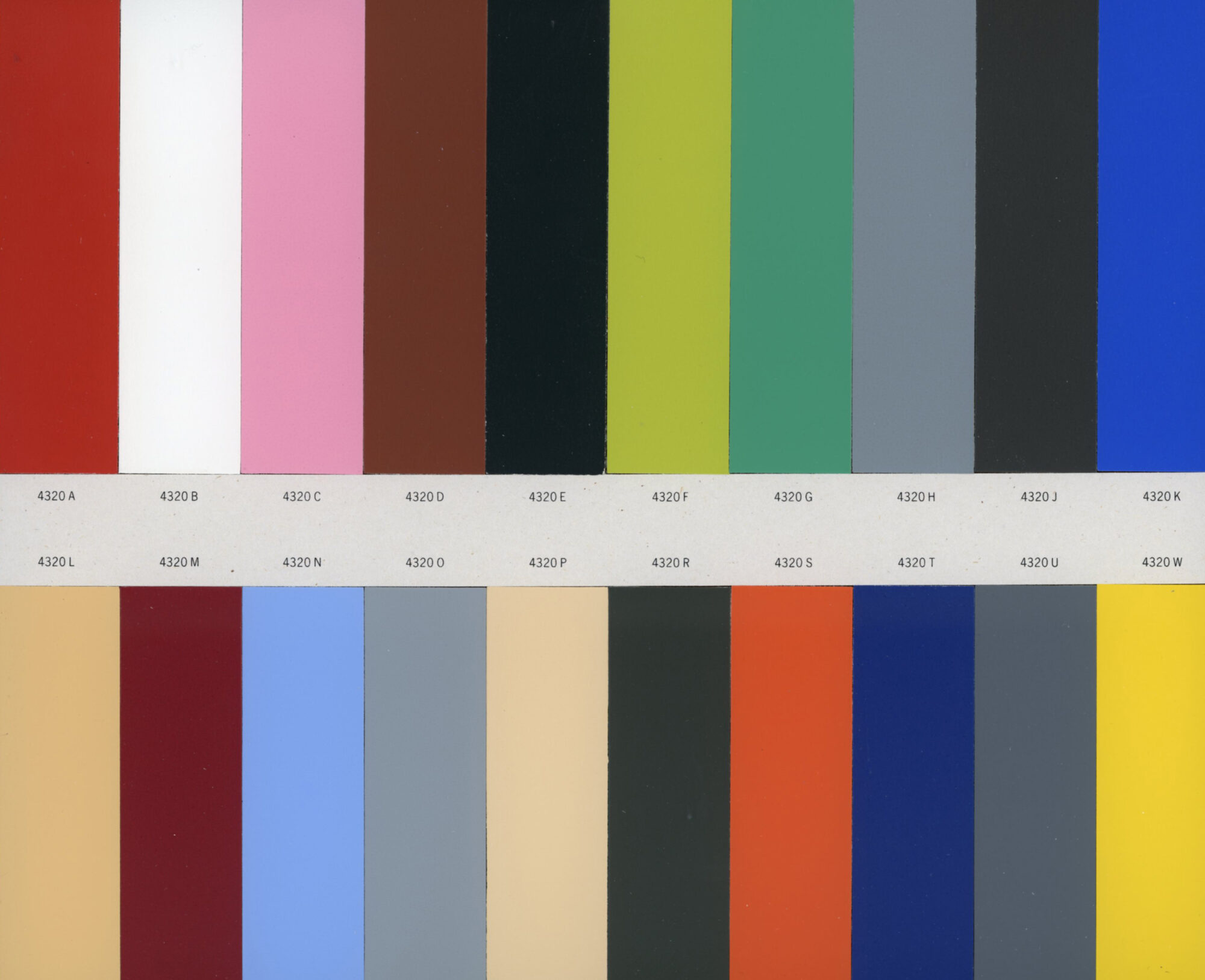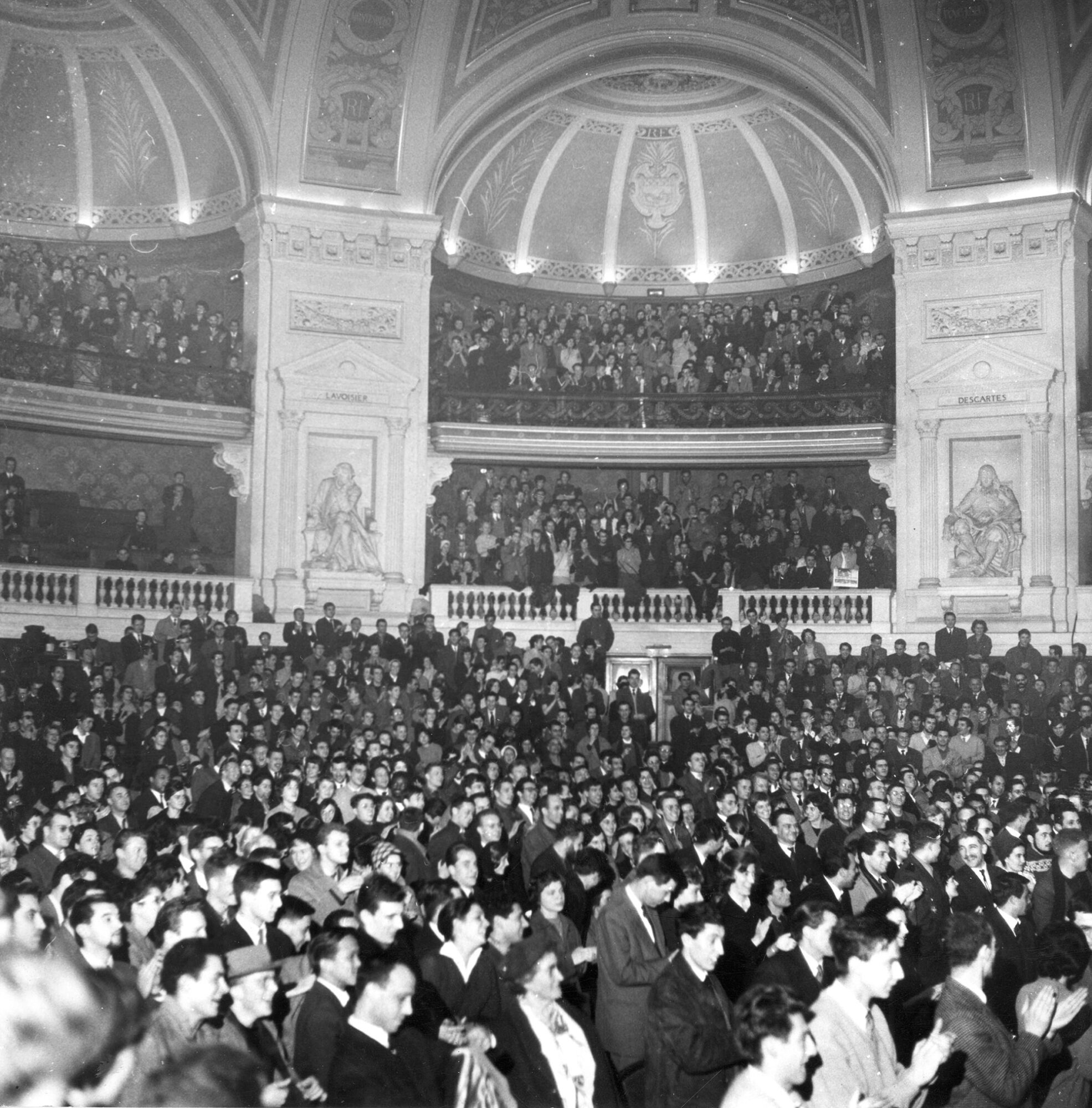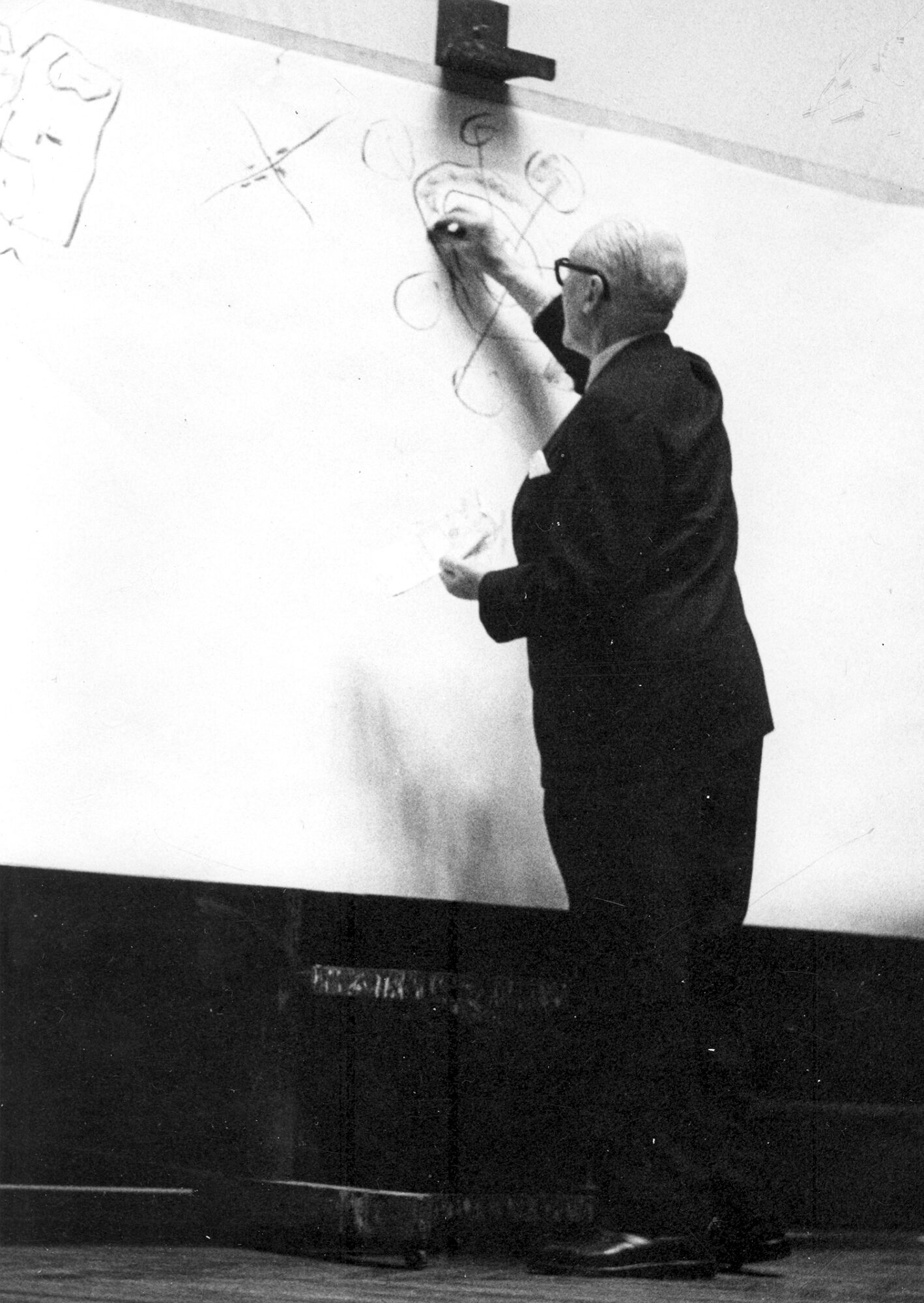
1957-1960: Last farewells, last projects
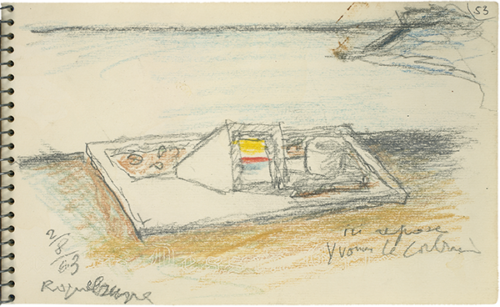
The repeated trips over the past year did not enable Le Corbusier to postpone or escape the death of Yvonne at the beginning of October. Alone, deeply distressed, even completely dazed if we are to believe former collaborators at 35 rue de Sèvres, Le Corbusier did not forget his architectural mission. The year 1958 began in India, in Chandigarh, where he made his thirteenth trip, not only to monitor the progress of the work, but also to reassert, with Nehru’s help, his control over the direction of the project.
To the memory of Yvonne’s battered body, Le Corbusier contrasts his work for the Philips Pavilion: organic (like a stomach), mathematical, musical and deliberately turned towards modernity thanks to the help of Iannis Xenakis and Edgar Varèse. The compositions that Le Corbusier delivers from now on are those he already knows inside out. He reworked motifs (such as the Berlin unit), took a new interest in four-handed compositions (such as the Maison du Brésil he designed with Lucio Costa), and completed projects that had lain dormant for almost thirty years (such as the Tokyo Museum of Unlimited Growth), while also proposing new projects (such as the Couvent Sainte-Marie de la Tourette and the Maison de la Culture in Firminy), which allowed him to pursue his brutalist approach to concrete, of which he had become the leading international ambassador. His energy and efforts were once again rewarded, and in early 1959 he set up his Baghdad stadium project on the remains of ancient Babylon.
His professional frenzy was once again hampered by the death of his “little mother” on February 15, 1960. The “natural recipient” of his thoughts left him in his hundredth year:
“I realize that, as a mother in Paradise, I am missing a letterbox where I can (sometimes) put such and such a piece of paper, bringing a positive endorsement to my work. For her, it felt like the only mailbox. The rest, the others, I do not care.“
1957
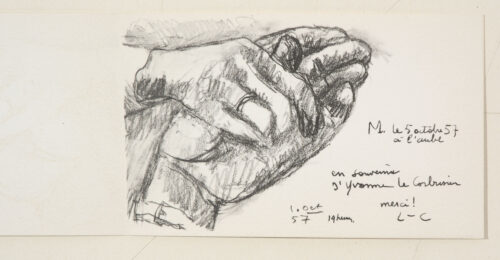
- On October 5, his wife Yvonne died
- Publication of L’Œuvre complète 1952-1957, Von der Poesie des Bauens, Ronchamp (Carnets de la recherche patiente), Entretien avec les étudiants des écoles d’architecture (Éditions de Minuit) and La Charte d’Athènes (Éditions de Minuit)
- Start of the “Ten Capitals” touring exhibition (Zurich, Berlin, Munich, Frankfurt, Vienna, The Hague, etc.)
- Le Corbusier becomes honorary citizen of the town of La Chaux-de-Fonds, Commandeur des Arts et des Lettres
1958
- Inauguration of the Chandigarh Secrétariat
- Production of Pavillon Philips and Poème électronique in collaboration with Edgard Varèse
- Poème électronique published by Éditions de Minuit
- Reprint of Vers une architecture published by Vincent Fréal
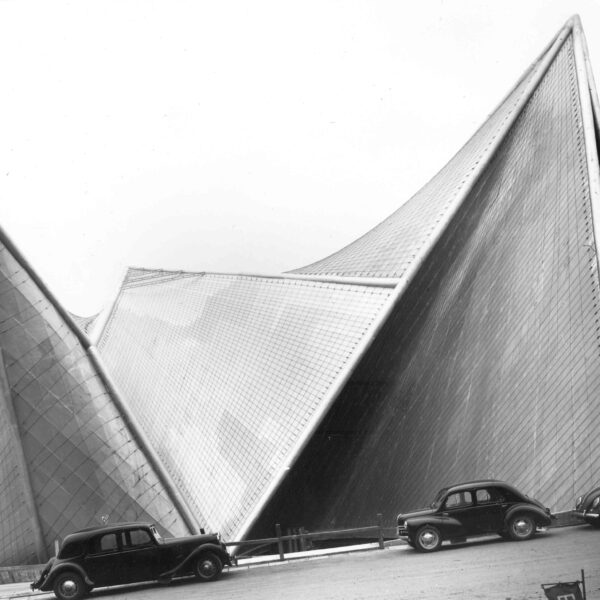
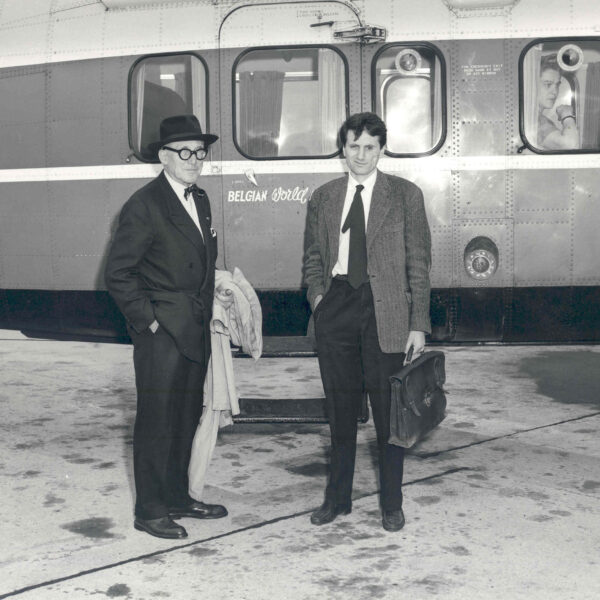
1959
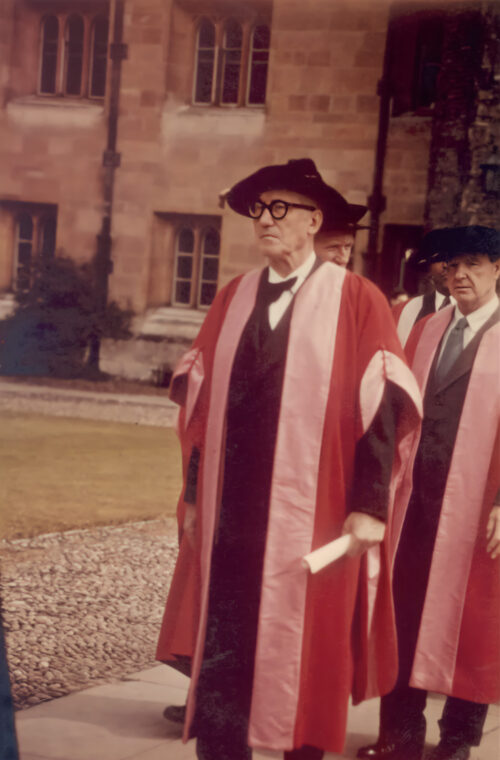
- Maison de la Culture de Firminy
- Reprint of Urbanisme and L’Art décoratif d’aujourd’hui published by Vincent Fréal
- Publication of the second Salubra collection and L’Urbanisme des trois établissements humains by Éditions de Minuit
- Le Corbusier travelling exhibition (1959-1960)
- Honorary Doctorate from Cambridge University
- Commissioned by Eugène Claudius-Petit, mayor of Firminy and former Minister of Reconstruction and Urban Planning, to build the Unité d’habitation de Firminy.
- Publication of the second Les Claviers de couleurs Salubra
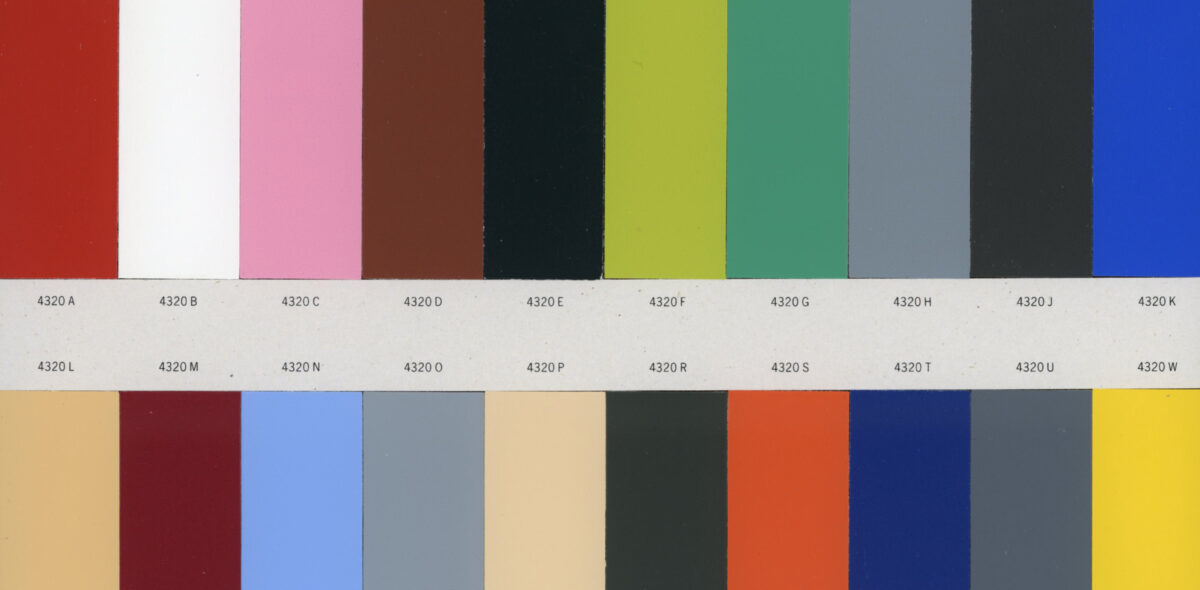
1960
- Construction of the Kembs-Nifer Lock
- Death of his mother, Marie-Charlotte Amélie Jeanneret
- Publication of L’Atelier de la recherche patiente
- Inauguration of the Couvent de La Tourette
- Reprint of Précisions sur un état présent de l’architecture et de l’urbanisme published by Vincent Fréal
- Conference at La Sorbonne on February 4 on Programmes contemporains d’équipement de la société machiniste
